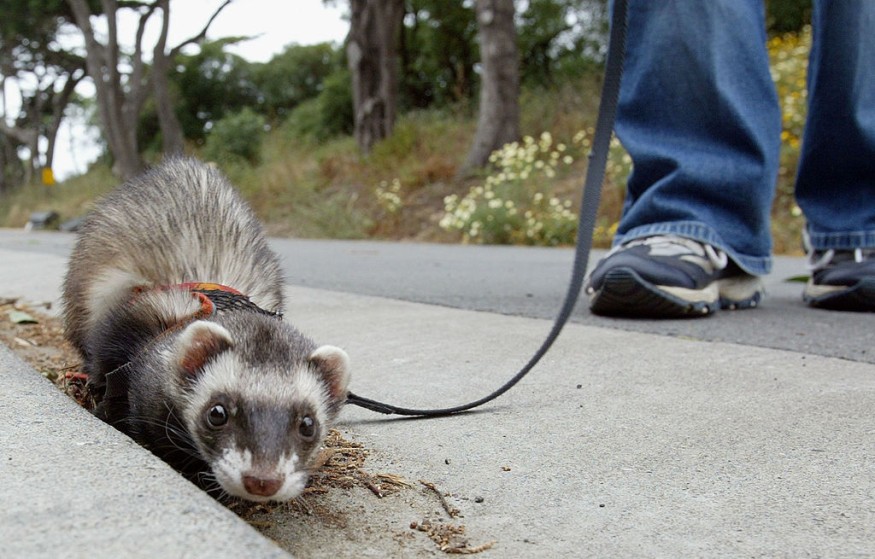Additional two cases of monkeypox have recently been confirmed in England, according to the country's health officials. A Daily Express report specified that the two individuals who live in the same household have been diagnosed with an unusual infection in London, the United Kingdom Health Security Agency said. They are not associated with the past case announced in England in early May.
Two more cases have been confirmed in England https://t.co/QTJKKrRrGk
— Daily Express (@Daily_Express) May 14, 2022
One of the most recent cases is being treated at the expert infectious disease unit at the London-based St. Mary's Hospital, Imperial College Healthcare NHS Trust. The other individual, on the other hand, is in isolation and does not presently necessitate hospital treatment.

Tracing Contacts of Infected Patients
According to health officials, they are currently investigating where and how the two people got the disease. Close contacts of the cases are being contacted and provided with health information, as well as health advice.
Health officials said monkeypox does not spread easily among people and that the overall danger to the general public stays very low. Director of clinical and emerging infections Dr. Colin Brown, from the UKHSA, said two new monkeypox cases have been confirmed in England that are not linked to the previously announced occurrences.
While investigations stay ongoing to identify the source of such an infection, it is essential to emphasize it does not transmit so easily between people and needs close personal contact with an infected individual with symptoms.
The overall danger to the general public stays very low. The official also said they are currently contacting any possible family, friends, or contacts within the community.
Monkeypox Infection
Dr. Brown also said they are working with the NHS as well, to reach any healthcare contacts who have had close contact with the cases before the confirmation of their infection, to examine them as necessary, and give advice.
The official added, that the UKHSA and the NHS have well-established and strong infection regulation procedures for addressing the cases of imported infectious disease and they will definitely need to be strictly followed.
According to medical director Professor Julian Redhead from Imperial College Healthcare NHS Trust, they are currently caring for a patent in the specialist high consequence infectious diseases unit at the said hospital.
He continued explaining that all of the essential infectious control procedures have been followed and they are working closely with the UKHSA and NHS England.
Essentially, monkeypox is a rare infection primarily transmitted by wild animals in portions of the west or central Africa. Moreover, the danger of catching it in the UK is quite low, the NHS said. It takes from five to 21 days for the initial symptoms to show up after being infected.
Transmission
The World Health Organization reported that "infection of index cases" has resulted from direct contact who has blood, bodily fluids, "or cutaneous or mucosal lesions of infected animals."
Meanwhile, in Africa, evidence of the infectious disease has been detected in various animals which include tree squirrels, rope squirrels, dormice, Gambian poached rats, and different money species, among others.
Transmission through droplet respiratory particles typically needs prolonged face-to-face contact, which is putting health workers, as well as household members of active cases at higher risk.
The longest recorded chain of transmission of monkeypox in a community was six successive human-to-human infections. Transmission can occur via the placenta as well, from mother to fetus. This is also known as congenital monkeypox.
Prevention
The Centers for Disease Control and Prevention said there are certain measures that can be taken to prevent being infected by monkeypox. Here are some of them:
1. Avoid Contact with Animals, those that could harbor the virus which includes animals that are ill or found dead in places where monkeypox exists.
2. Avoid contact with materials like bedding for one, that has been in contact with an ill animal. Isolate patients infected with the virus from those who could be at risk for infection.
3. Isolate infected patients from others who could be at risk for infection.
4. Practice proper hygiene following contact with infected humans or animals. For example, wash hands using soap and water, or with an alcohol-based hand sanitizer.
5. Wear personal protective equipment or PPE when caring for monkeypox patients.
Report about the monkeypox in the UK is shown on Business News's YouTube video below:
RELATED ARTICLE : CDC Confirms Monkeypox Case in Maryland After a Traveler Returns From Nigeria, Virus Has Been Re-emerging Since 2017
Check out more news and information on Medicine & Health in Science Times.










